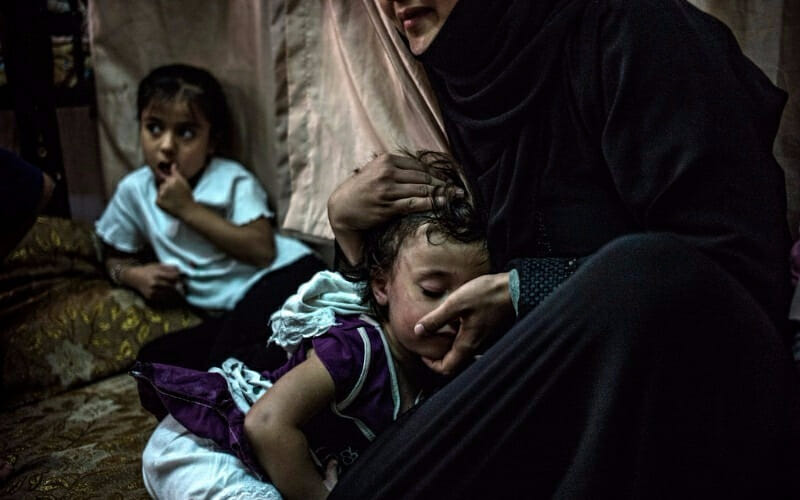
Refugees Matter, for Us and the World
Due to civil war, 13.5 million Syrians are in need of humanitarian assistance, with millions having to seek refuge in other countries. Turkey, Lebanon, Jordan, and several European countries, to name a few, have responded to the Syrians’ desperate calls. The United States – leader of the free world – has thus far declined to extend its hand, and has gone as far as to bar any refugees from Syria. This is wrong.
The current refugee policy under the Trump administration allows for the entry of just 50,000 refugees annually. Meanwhile, the world faces the worst humanitarian crisis since World War II. Our policy does not match reality. We reached the refugee cap three months ago, yet there are several crucial reasons to return to the previous administration’s goal of admitting 110,000 annual refugees. Doing so is vital to maintaining United States leadership. It strengthens our economy. Finally, it is key to combating the long term threat of terrorism.
American leadership means doing what others cannot do. We need to show strength and resolve in the face of adversity, and tackle challenges head-on. Since 1945, the United States has led international efforts on behalf of world peace and security. Now is not the time to break away. More to the point, maintaining our role as humanitarian-in-chief means we have the moral authority to pressure others to participate in US-led policies. Our leadership in shouldering humanitarian burdens is an investment in cooperation and partners who conform to US norms and interests.
Domestic resistance to refugees has much to do with the misconception that they compete with American citizens for low-wage jobs. But their presence barely registers. Even if all adults from 110,000 refugees were to seek low-wage jobs, just two-tenths of one percent of the low-wage workforce would experience competition.
Instead, policymakers should focus on the concept of the demographic dividend – one of the major drivers of economic growth. Developed economies are vulnerable to aging populations due to declining birth rates. If there are fewer people working, total output decreases. The better policy response involves bringing young blood to the economy. Increasing the refugee cap will help do just that.
But what about the threat of terrorism? Opponents point to terrorism in Europe as reason to reject refugees. Except, Europe and America do not share the same problem. America is separated from conflict by two giant oceans. It is, therefore, much easier to control and monitor the flow of refugees.
That’s why, to date, the United States has not been victim to a single terrorist attack by an admitted refugee, including those of Syrian descent. Another key factor is that our vetting procedures are multifaceted and last up to 24 months. We cross-check our information between intelligence agencies. We interview refugees. We take their biometrics. And we teach them American values.
Still, why should we risk admitting refugees? Because our biggest threat at home is domestic radicalization. Our most vulnerable citizens are those who do not feel welcome. Supporting refugees is a strong signal against groups like ISIS. There is a place in America for all backgrounds and all religions. The smart option is to promote acceptance and integration of minorities so that, for all of us, the United States remains the place we call home.
Our current refugee policy abdicates American leadership, acquiesces to extremist ideology, and is blind to economic potential. We should return to a refugee cap of 110,000. We should restore our humanitarian leadership role that contributes to a better America and a more secure and peaceful world.
